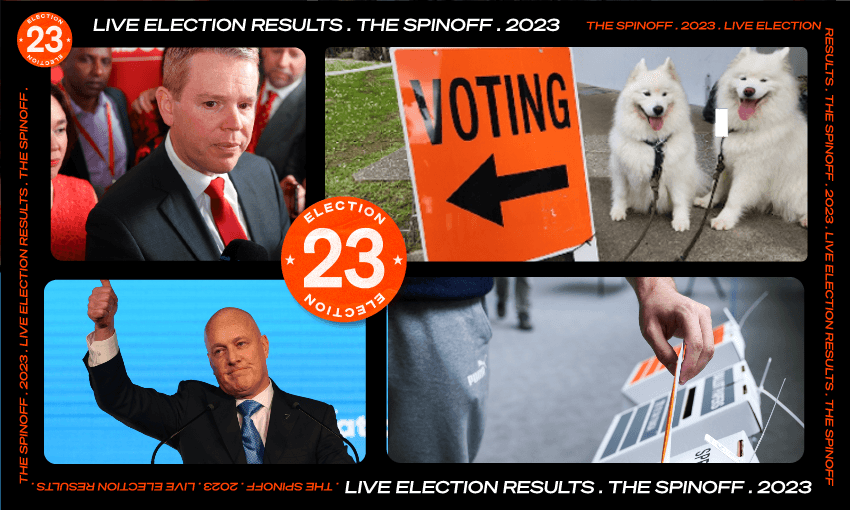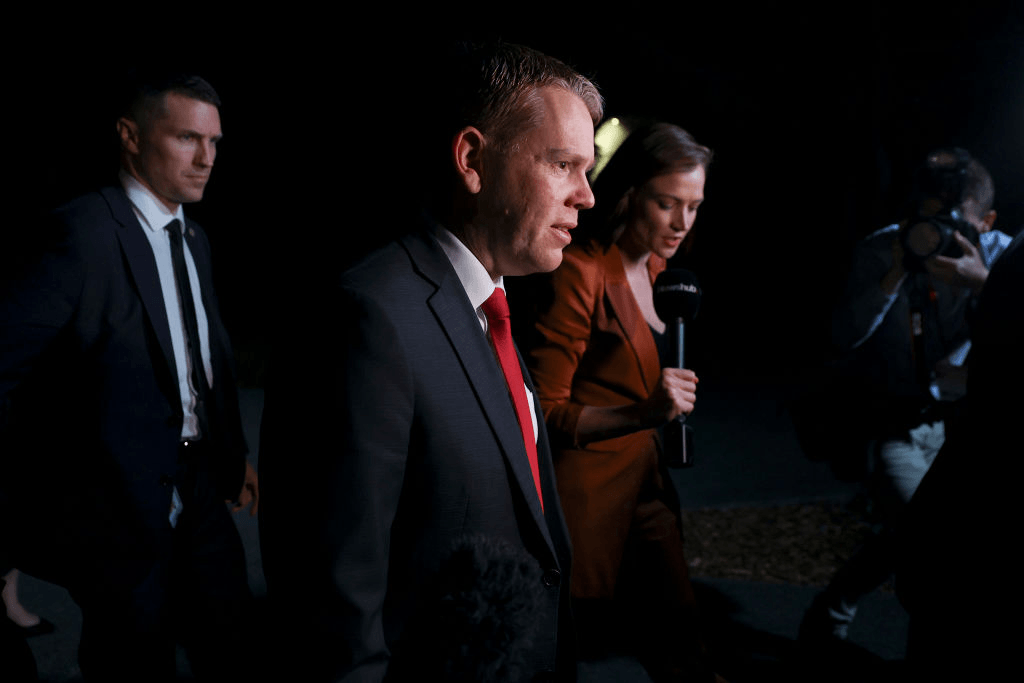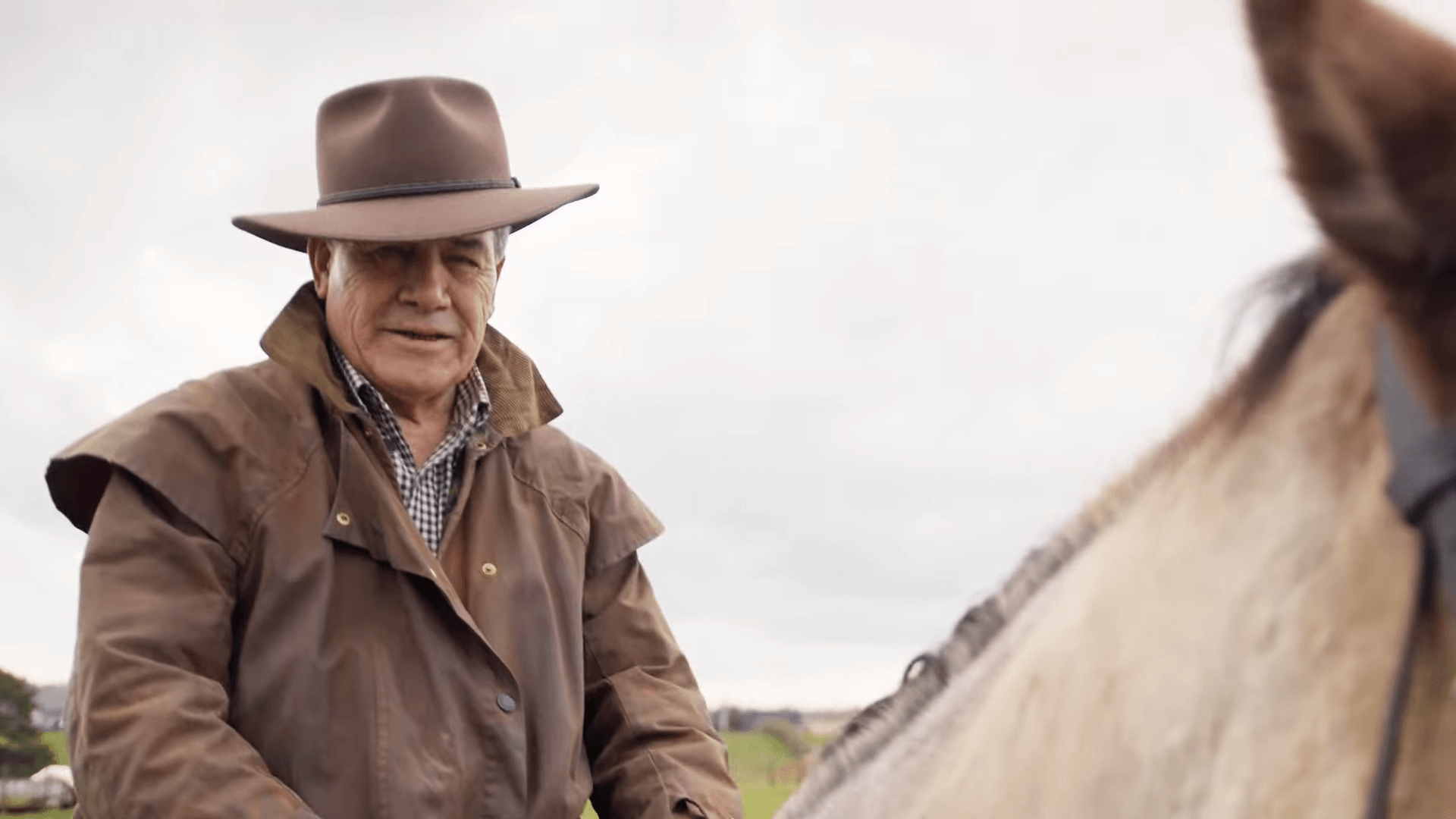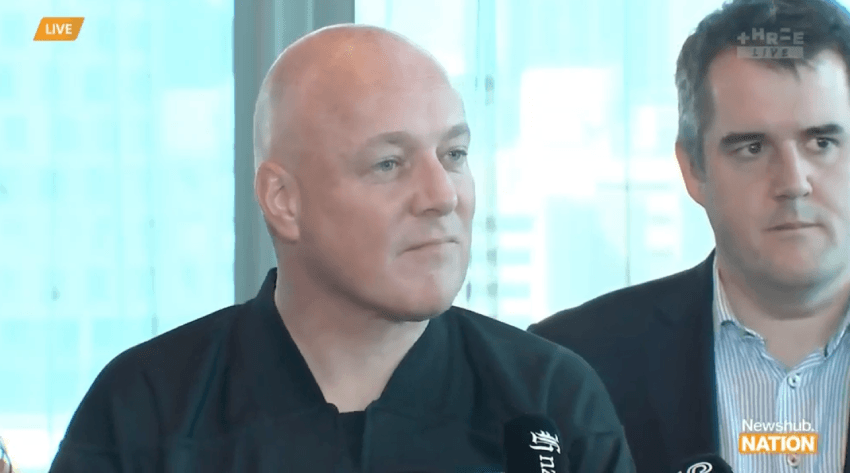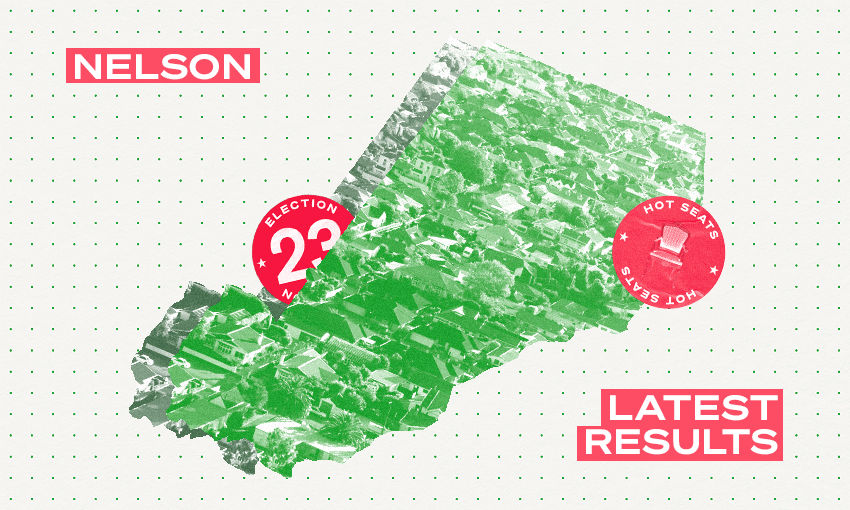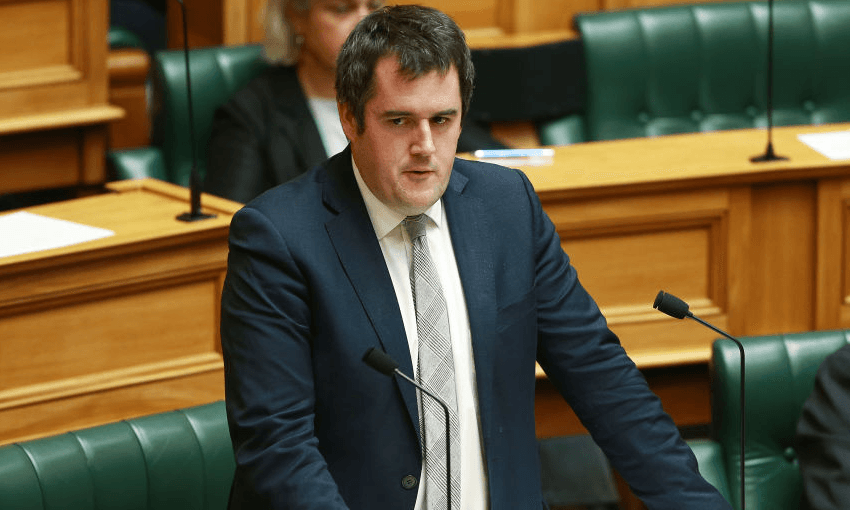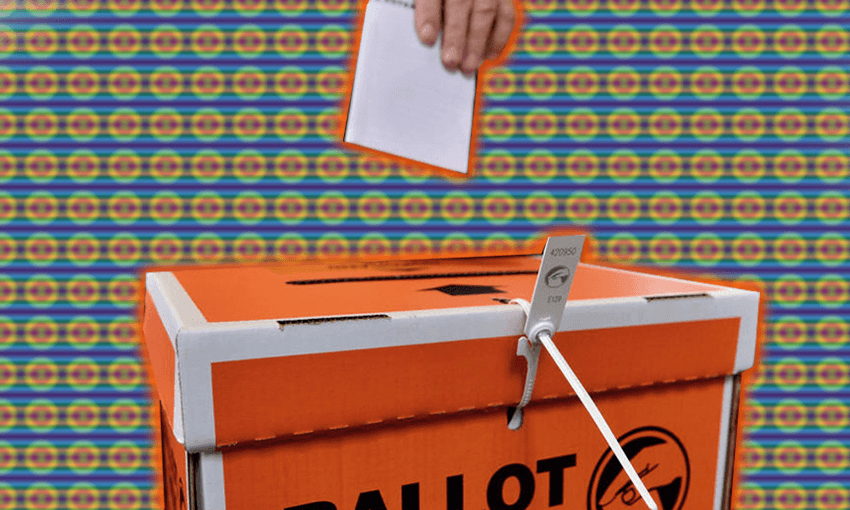- With 100% of (ordinary) votes counted, National is on 38.95%, Labour 26.9%, Greens 10.77%, Act 8.98%, NZ First 6.46%, Te Pāti Māori 2.61%.
- This gives a National-Act coalition 61 seats – a majority, but only just.
- Voter turnout was 78.4%, down, as expected, on 2020.
- The special votes are expected to make up more than 20% of the final total.
- Christopher Luxon has yet to speak to Winston Peters, but campaign chair Chris Bishop has told media the party is not counting its chickens: “Let’s wait and see.”
- The Greens have won three electorate seats (Auckland Central, Wellington Central and Rongotai, and Act two (Epsom and Tāmaki).
- Te Pāti Māori has won four electorate seats (Waiariki, Te Tai Hauāuru, Hauraki-Waikato and Te Tai Tonga).
Auckland’s ‘very difficult times’ reflected in results: Labour’s Megan Woods
Labour’s Campaign chair Megan Woods has acknowledged that results in previously safe Labour seats in the city reflected “Auckland’s very difficult times”. Aucklanders experienced longer lockdowns during the pandemic, often while the rest of the country lived with fewer restrictions.
Speaking to Newshub Nation this morning, Woods said the election results were not what anyone hoped for or wanted, least of all Labour leader, Chris Hipkins.
Hipkins gave an emotional speech last night, particularly when he spoke about the support he has had from his family. Woods said he was “entitled to a bit of emotion”.
Woods rejected the suggestion that Hipkins should bear the brunt of Labour’s collapse in support saying the loss falls on “all of us”.
The party will now undertake a review, ask themselves “some questions” and examine what went well and what didn’t.
“We were against a very strong mood for change,” Woods said but it was far too early to say whether Labour had lost touch with voters.
In the Auckland seats of Mt Roskill, New Lynn, Te Atatu and Mt Albert, both National and Labour candidates hold very slim majorities and with over 500,000 special votes to be counted, outcomes are likely to change. Woods said the party wants to go through the numbers and fully digest them and look at turn out.
“We’ve done this before, we need to regroup and pick ourselves up,” Woods said.
